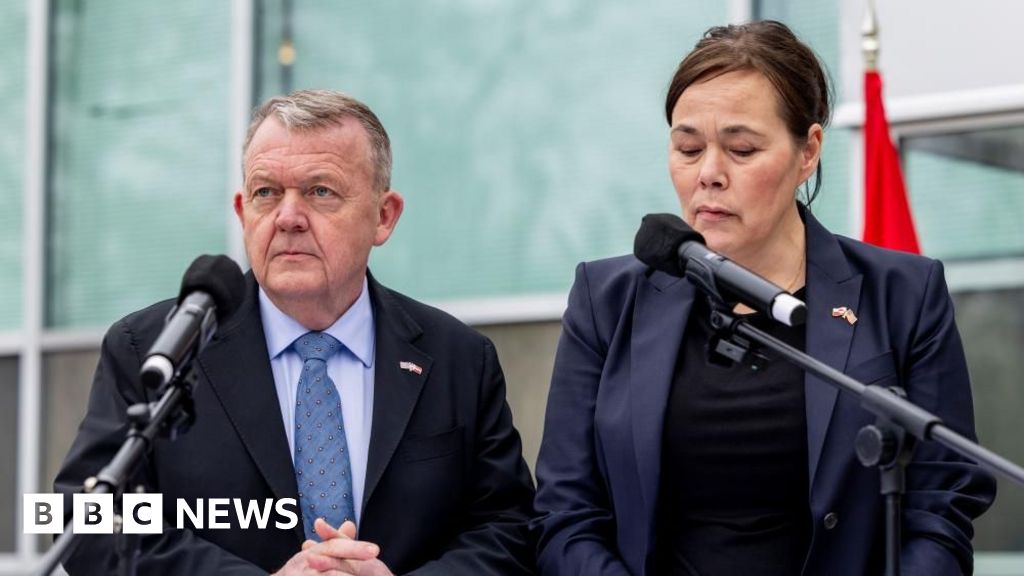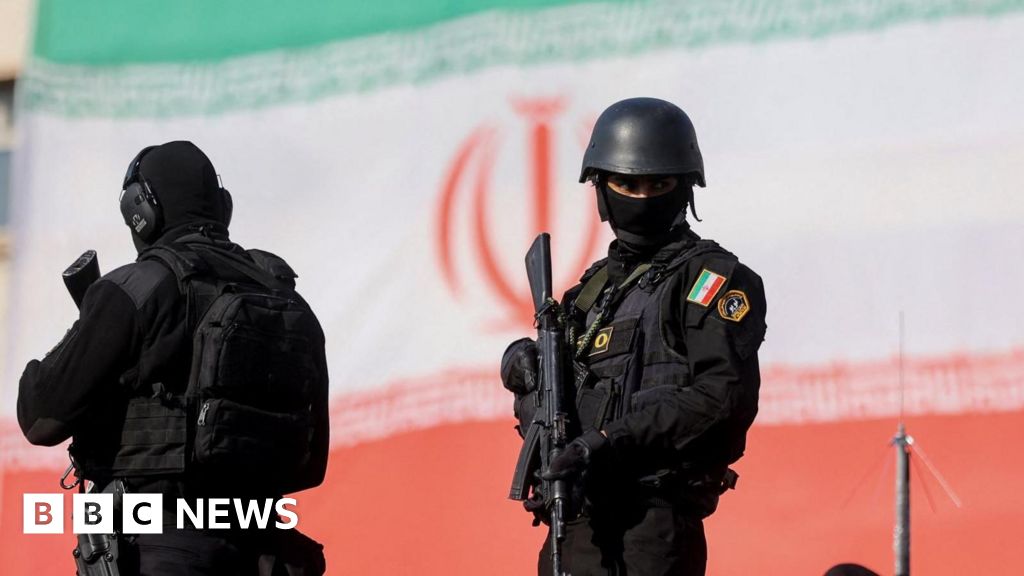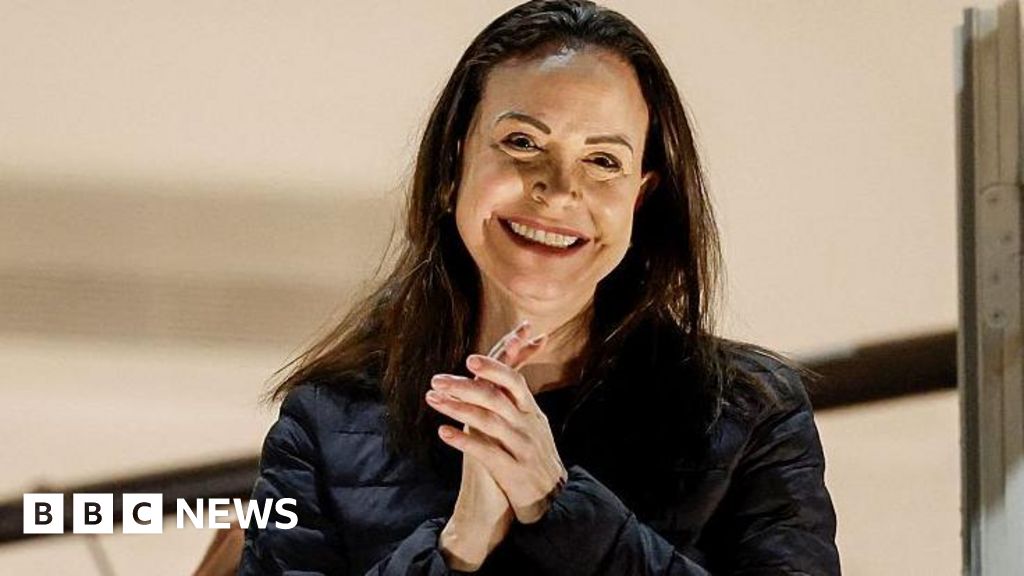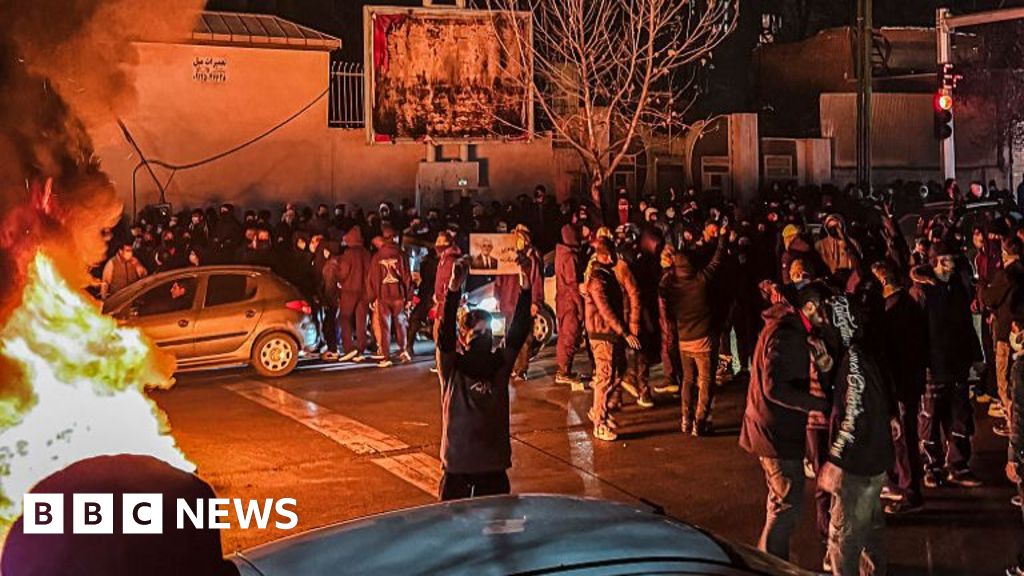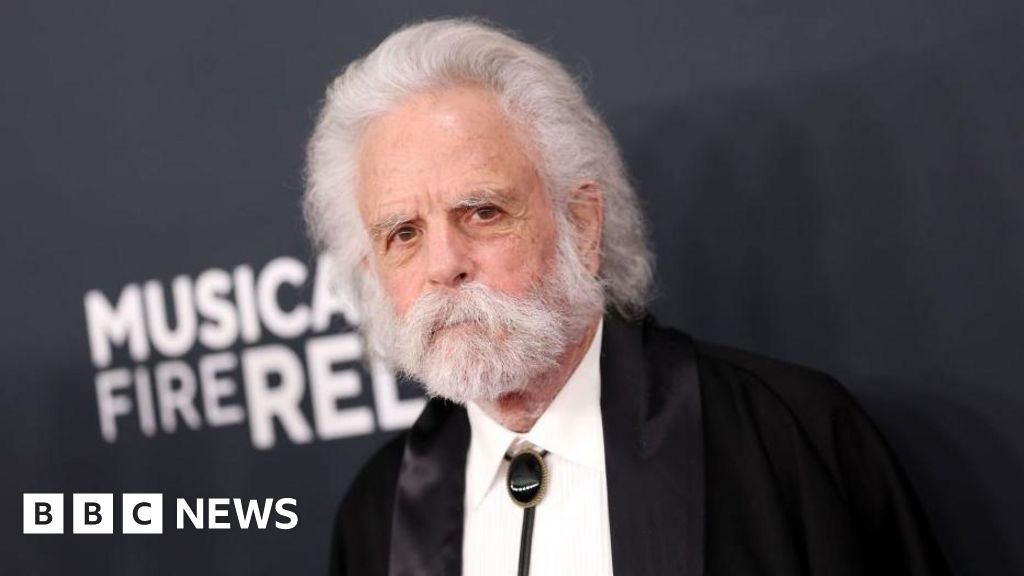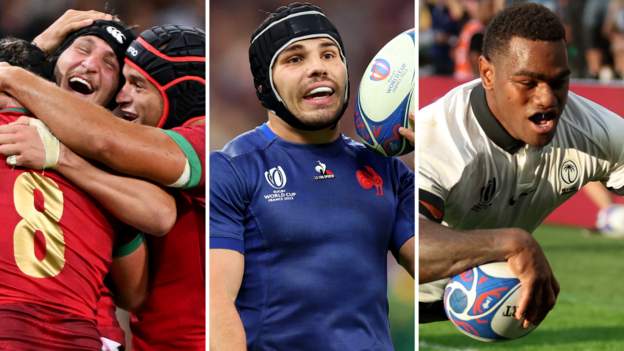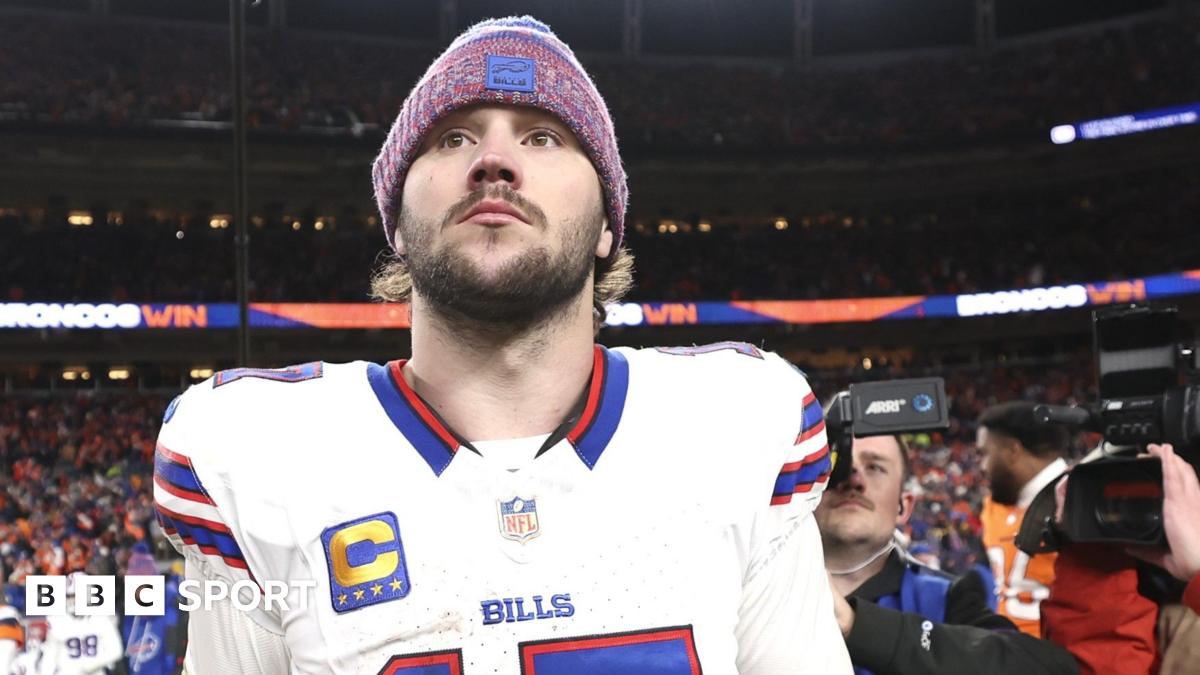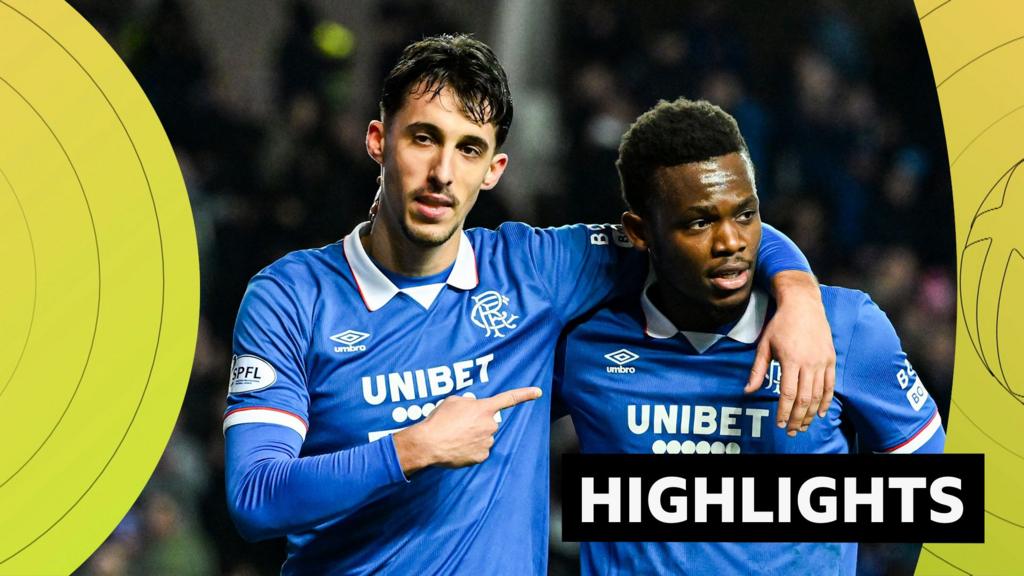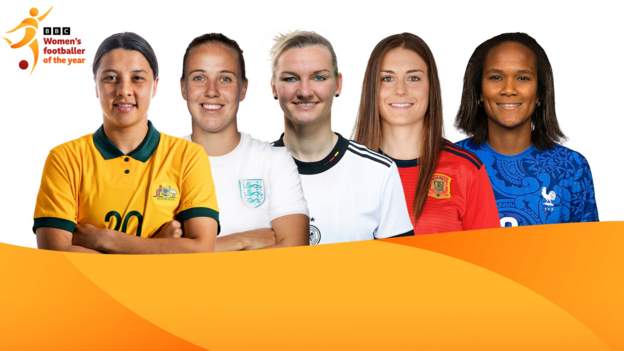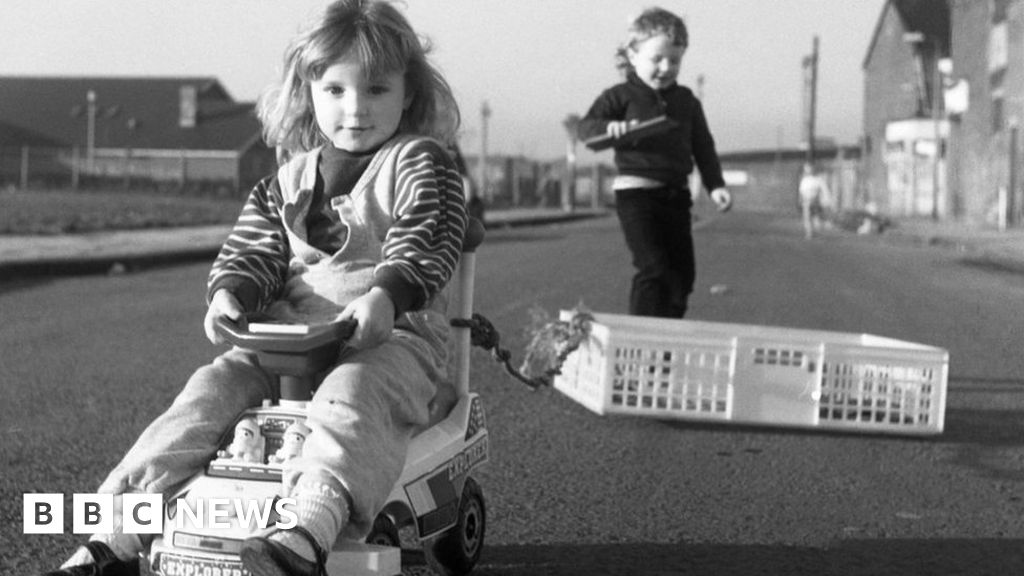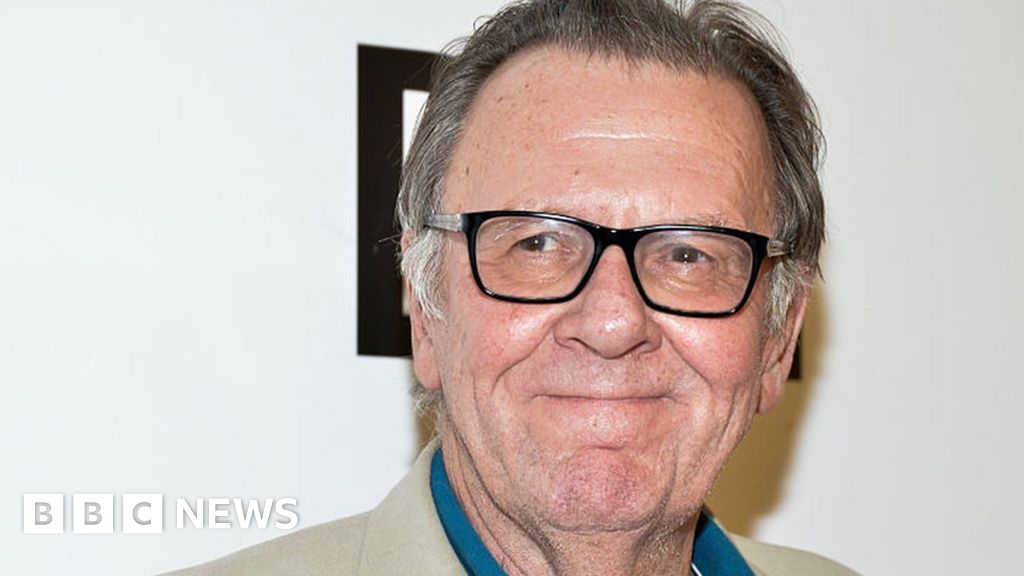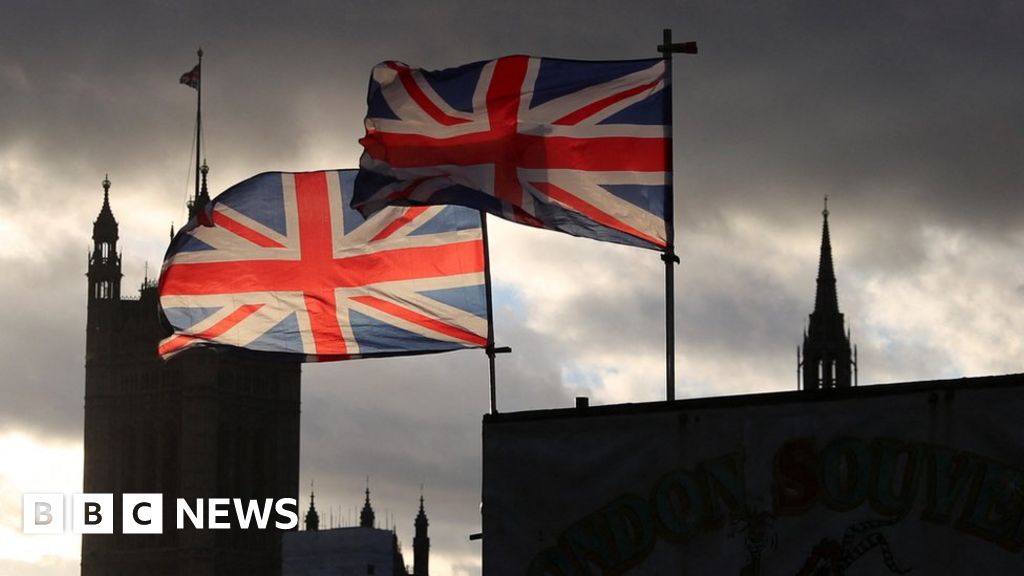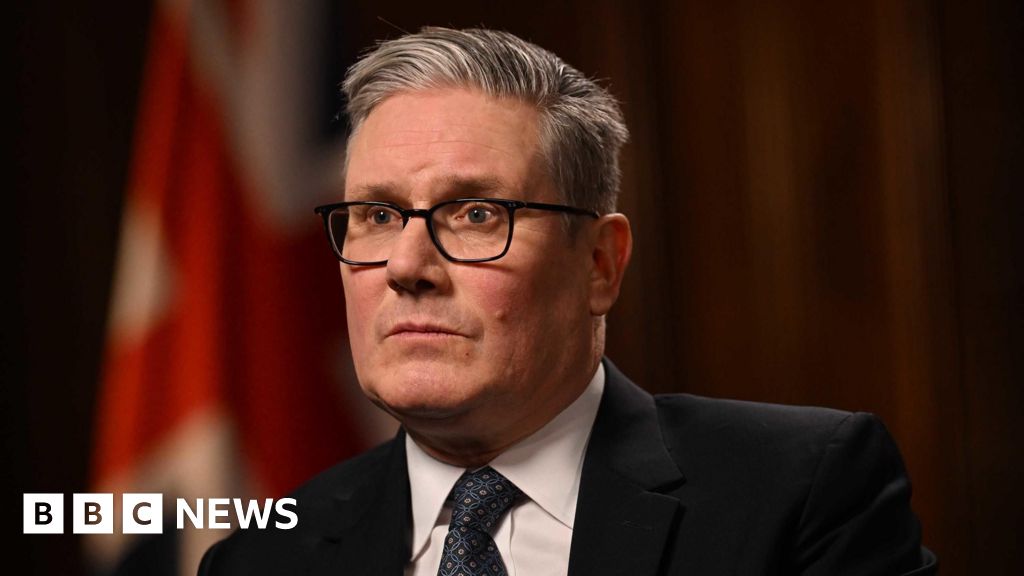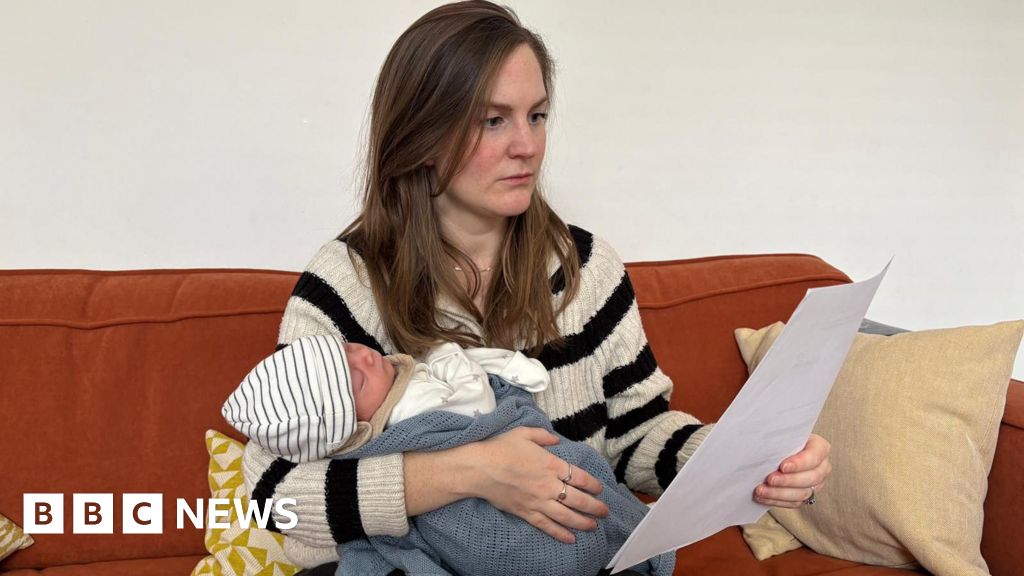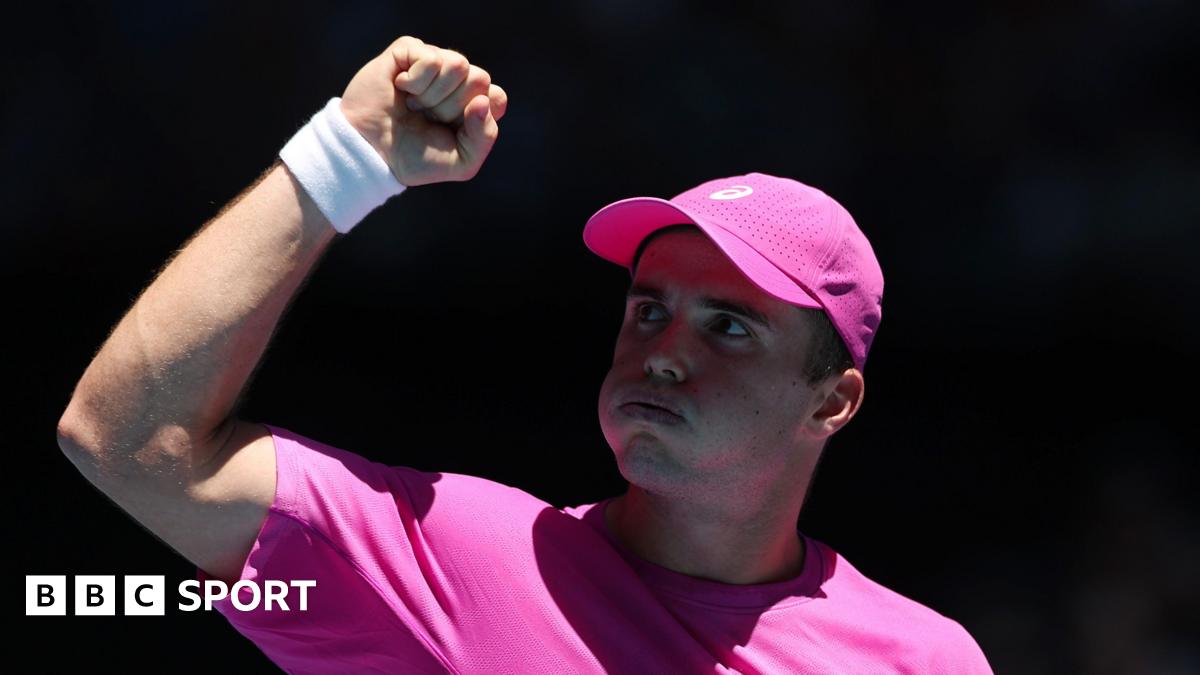After 51 days of of fierce competition, the 2023 Rugby World Cup is over.
The first tournament in France since 2007 featured the drama of the hosts’ captain Antoine Dupont’s injury, the “biggest moment in Fiji sport”, Portugal winning their first game and Siya Kolisi making history by lifting back-to-back World Cups with a record-breaking fourth title for South Africa.
Here are our unforgettable moments from an enthralling seven weeks.
Ford’s fabulous drop-goals
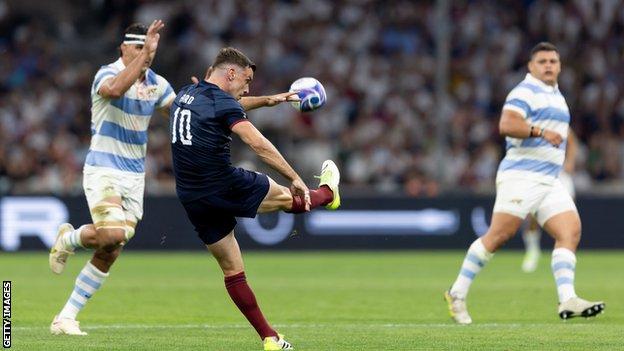
England’s crunch World Cup opener against Argentina got off to the worst possible start when Tom Curry was sent off after just three minutes of his return to the side after an ankle injury.
Rather than hinder Steve Borthwick’s men, it galvanised them as the right boot of fly-half George Ford fired England to a morale-boosting 27-10 victory.
The unflappable 30-year-old kicked three first-half drop-goals, including one from the halfway line, plus six penalties in a man-of-the-match display.
Fiji upset Jones’ Australia
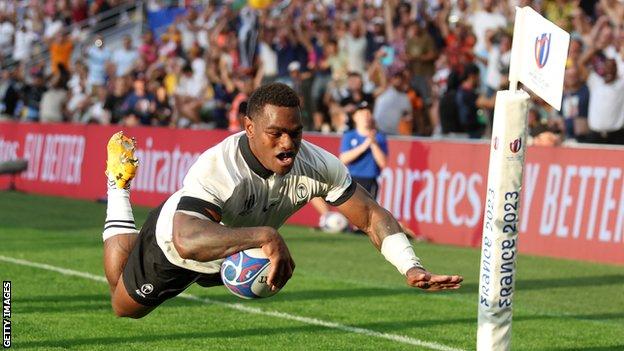
Coming into the World Cup Fiji were firmly established as a potential dark horse to cause an upset following their first-ever win over England in their final warm-up game at Twickenham.
However, after an agonising loss to Wales in their opener – when Semi Radradra dropped the ball with the line at his mercy – it set up a win-or-bust encounter against Eddie Jones’ struggling Australia.
With a performance that lock Temo Mayanavanua described as “the biggest moment in Fiji sport”, the Pacific Islanders outclassed the Wallabies with a 22-15 victory – their first against Australia in 69 years. It also put Jones’ men on the brink of a first exit at the pool stage.
Irish takeover in Paris
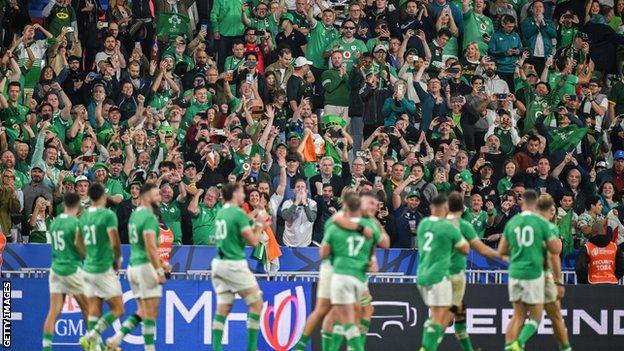
Ireland packed out the Stade de France with a sea of green for their Pool B clash with defending world champions South Africa.
In a high-intensity match, the Irish battled to a 13-8 victory to inflict what would be South Africa’s only defeat of the World Cup.
After the match, the Cranberries’ song Zombie was sung by the Irish support in an atmosphere which winger Mack Hansen said was “like a Grand Slam on steroids” and felt more like “800,000 fans”.
A special night for the Irish and one the Springboks learned from.
Dupont soldiers on
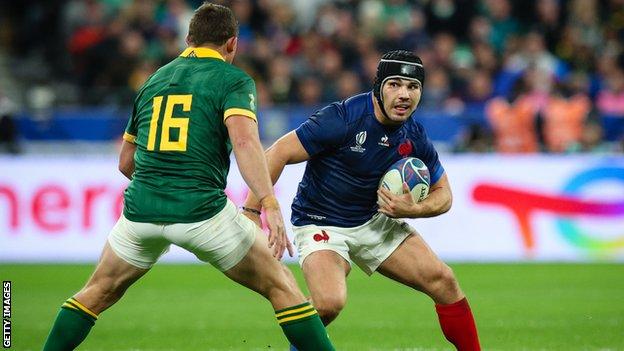
When the head of Namibia’s Johan Deysel smashed into Antoine Dupont’s jaw, the whole of France held its breath.
The captain, talisman and poster boy of his home World Cup looked set to at least miss France’s crunch quarter-final with likely opponents South Africa.
However, successful surgery on a fractured cheekbone – which included inserting a metal plate – and a scrum cap for extra protection meant Dupont could feature in what was an all-time classic encounter against the Springboks.
Portugal land famous first win
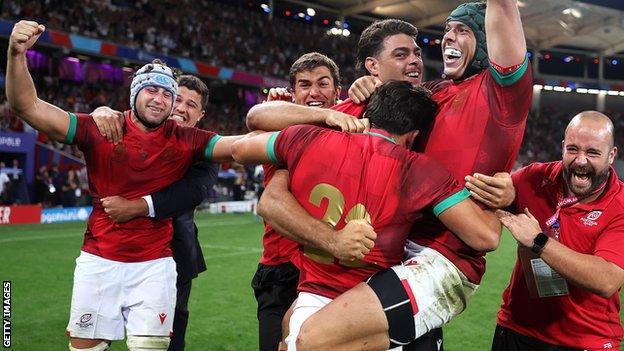
Just when it appeared Fiji had the title for upset of the pool stage, up stepped Portugal. Having never won a World Cup game, they produced an inspired performance to defeat the flying Fijians 24-23 in Toulouse.
Fiji were 23-17 up late on, but Rodrigo Marta’s converted try stole the game and sparked a heroic welcome when the players returned home.
Fiji required only one point from the match to go through to the last eight, meaning all parties were happy with the outcome – other than Australia who were knocked out as a result.
New Zealand hold off Ireland for final 37 phases
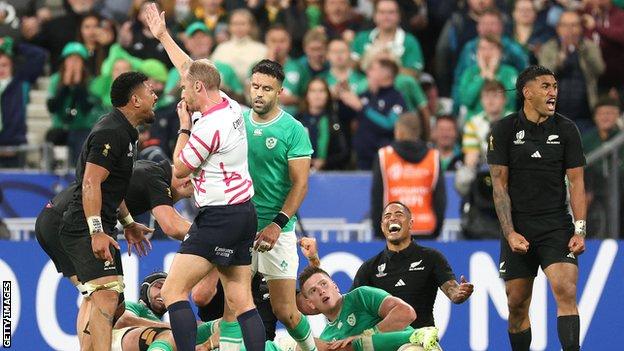
Both New Zealand and Ireland met again for the second consecutive quarter-final, but in Paris it was a much tighter and tense affair than in 2019.
Centre Jordie Barrett managed to slide underneath hooker Ronan Kelleher to hold up what looked a certain late score for the Irish.
The then-ranked number one side in the world continued to smash their way towards the All Blacks’ line in the closing stages – in search of a match-winning score.
But New Zealand’s defence held out for a final 37 phases before veteran lock Sam Whitelock won the decisive penalty to seal a narrow 28-24 win.
The greatest first half of rugby?
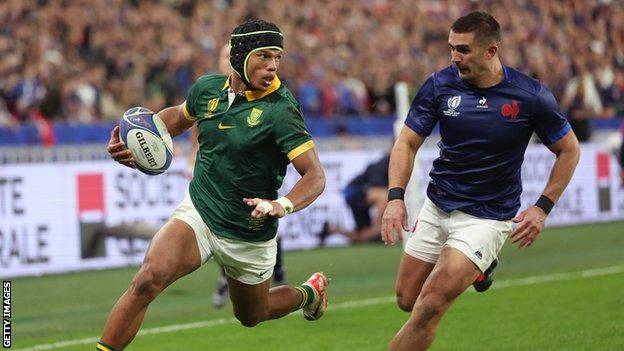
From one titanic great quarter-final to the next. With the top four sides in the world meeting each other in the last eight there was set to be fireworks.
The bar was set high between Ireland and New Zealand before France and South Africa went to a whole new level.
Three first-half tries each, in a back-and-forth free-flowing encounter gave neutrals the most thrilling game of the competition.
South Africa ground out a narrow 29-28 success to eliminate the hosts, thanks to a late Eben Etzebeth try but the game will always be remembered for the early high level of quality on show.
Kolbe’s crucial charge down
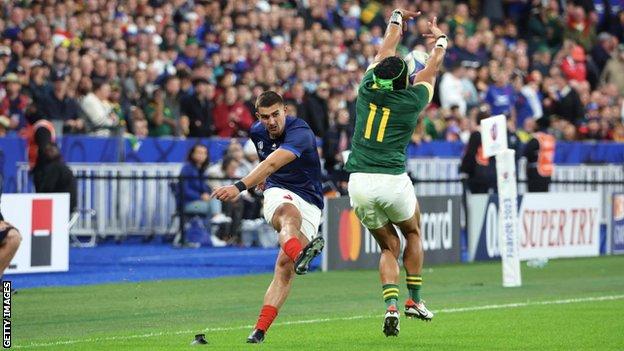
Just one point separated France and South Africa in that quarter-final and among the crazy first-half action, Cheslin Kolbe produced one of the match-winning moments.
France hooker Peato Mauvaka crossed to level the game at 12-12 and as Thomas Ramos struck his conversion from the touchline, up popped Kolbe to charge it down.
Some thought the jet-heeled wing went too soon, but rough calculations had him covering just under 25 metres in less than four seconds. It was the type of quick-thinking that summed up the Springboks’ champion mindset.
Pollard penalty shatters England
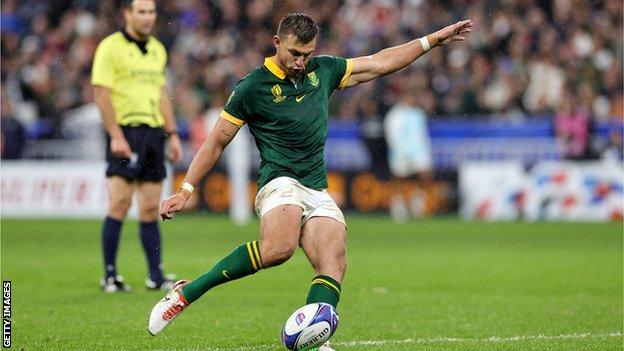
Fly-half Handre Pollard was a surprise early arrival to South Africa’s semi-final victory over England – coming off the bench to replace Manie Libbok after just 31 minutes, with Libbok struggling in the difficult conditions.
Back in 2019, Pollard fired over a 76th-minute penalty to beat Wales in the semi-finals and did the same four years later. This time he kicked from halfway in the 77th minute to send South Africa to back-to-back finals.
The 29-year-old said he “drew a lot of confidence” from his late penalty, also from halfway, against France in the quarter-finals a week prior.
Pollard then kicked all of South Africa’s points in their 12-11 victory over New Zealand in the final.
Ice in the veins.
Cane’s historic red card in final
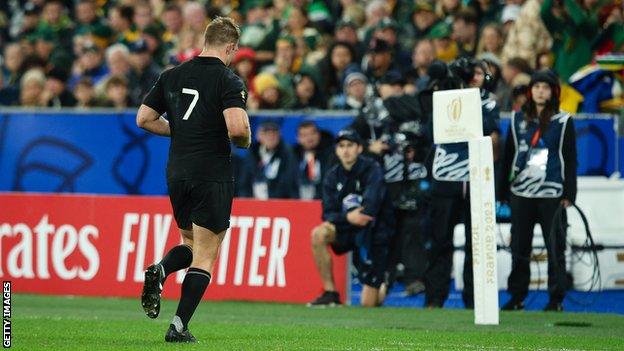
Sam Cane’s position in the All Blacks’ starting XV was questioned before their quarter-final with Ireland. The captain had only started one game in the World Cup after being a late injury withdrawal in their opening loss to France.
But he put in an inspired performance against the Irish and then led the All Blacks to their first final since 2015.
Cane made history in the final – not for winning – but rather for being the first male player to be sent off after a high tackle on South Africa’s Jesse Kriel in the 27th minute.
There were eight red cards in the 2023 competition – matching the tournament high in 2019 – as World Rugby clamped down on high tackles, although the consistency of what was a sending-off offence prompted fierce debate.
Kolisi lifts back-to-back World Cups
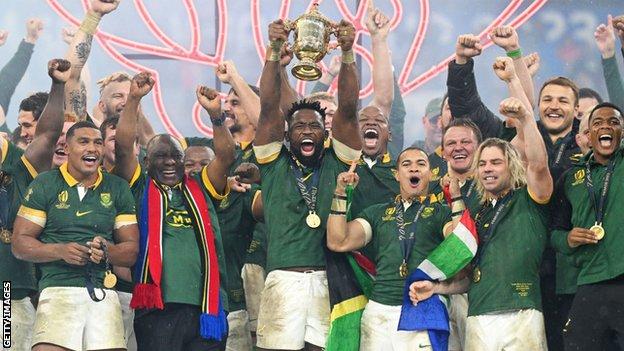
Siya Kolisi made history in 2019 when he became South Africa’s first black captain to hold aloft the World Cup. Roll on four years and his motivation resulted in the 32-year-old lauded as the first Springbok to lift back-to-back titles.
Only former New Zealand captain Richie McCaw, in 2011 and 2015, had previously led his side to triumph in successive campaigns. Kolisi matched that great achievement in Paris following a slender 12-11 victory over the All Blacks, which also ensured the Springboks became the first nation to claim four titles.
It was also a success that Kolisi said would help unite the whole country of South Africa and confirmed his iconic status in rugby history.



